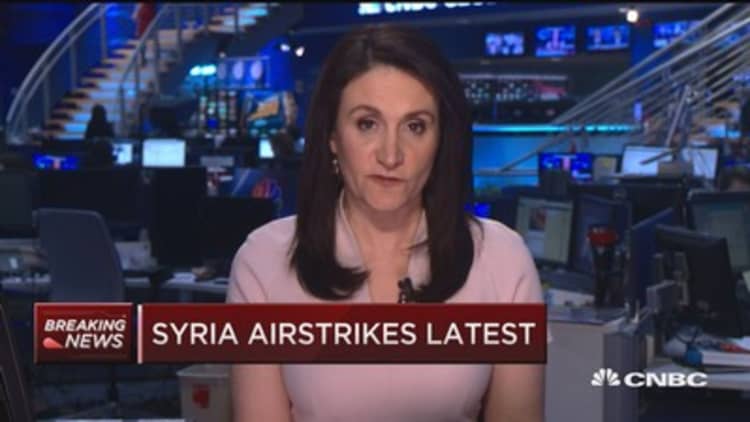
Despite the warnings and rhetoric, Russia may be hesitant to take action that would escalate conflict with the United States in Syria.
The U.S. launched a major missile strike Thursday night on a Syrian air base following a chemical attack blamed on Syria that killed dozens, including children, earlier in the week. President Donald Trump pinned those deaths on Syrian President Bashar Assad, a leader Moscow has supported during a yearslong, seemingly intractable Syrian civil war. The Syrian government has denied using chemical weapons.
The Russian Foreign Ministry called the strike an "egregious and obvious violation of international law," while Moscow suspended an agreement aimed to prevent U.S. fighter jets from coming into conflict with Russian planes. Russia signaled that the attack could worsen relations between Washington and Moscow.
Still, actions from both Russia and the United States suggest the two countries don't want tension between them to increase any further, said Olga Oliker, senior advisor and director of the Russia and Eurasia program at the Center for Strategic and International Studies, a bipartisan research organization.
"I don't think they want escalation. I think they want to deter escalation," Oliker said.
She noted that the U.S. warned Russia about the strike before it came, limiting its potential damage. Russia may have been able to use air defense systems at the base, where it has equipment, and decided not to, Oliker added.
Russia also took steps to publicly "diminish the effects of the strike," she said. For example, the U.S. said that all but one of the 59 missiles launched hit their targets, but Russia's Defense Ministry said only 23 of the missiles reached the base.

The Defense Ministry also released drone video purportedly showing minimal damage at the base, which could be read as an attempt to minimize its effectiveness — and by extension, an attempt to reduce Russia's need to retaliate in some way.
The U.S. and Russia have previously talked about cooperating in the Middle East on things like fighting the Islamic State terror group, which has a presence in Syria. Oliker said Moscow "likes the idea of being on the same side of the United States in Syria" and any clashes between the countries threaten a "key area of cooperation."
Of course, any actual cooperation may hinge on Russia's support of Assad. In an apparent reversal from the Trump administration's previous position, both Trump and Secretary of State Rex Tillerson signaled Thursday that they want to remove Assad from power.
Tillerson also urged Russia to "consider carefully" its support for Assad.
But it could "take a long time to wean the Russians from Assad," Richard Haass, president of the Council on Foreign Relations, told CNBC on Friday.
Tillerson is scheduled to visit Moscow next week.
Watch: Conflicting reports on airstrike effectiveness



